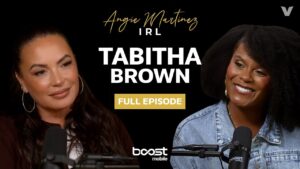In a recent episode of English Majors (Season 2, Episode 11), host Clayton led a thought-provoking discussion on how propaganda infiltrates modern life. From political spin to food marketing and even rap lyrics, the conversation was both humorous and eye-opening, breaking down how narratives are shaped, repeated, and sold to the public.
One of the central themes of the discussion was how political messaging thrives on repetition—spreading a narrative until it becomes widely accepted as fact. The hosts highlighted a recent election where Black men were unfairly blamed for voting patterns, pointing to how the media can manipulate public perception. They also revisited iconic campaign slogans like Obama’s “Hope” and “Change,” critiquing how these messages often fail to translate into real action.
The panel shifted focus to tech companies, calling out smartphone manufacturers for pushing constant upgrades with minimal real advancements. “Until that shit is holographic, what are we really upgrading?” one of the hosts quipped, underscoring how artificial demand is created to drive sales.
The conversation turned to TikTok’s influence, with the hosts analyzing the stark differences between the American and Chinese versions of the app. They questioned how content is curated and manipulated, raising concerns about the power algorithms have in shaping public discourse and trends.
In a thought-provoking moment, the hosts speculated whether pharmaceutical companies played a role in promoting prescription drug references in hip-hop. With the rise of name-dropped medications in lyrics, they debated whether this was an organic trend or a strategic marketing move.
With AI technology advancing rapidly, distinguishing between real and AI-generated images is becoming more challenging. The hosts discussed how people often accept information at face value without fact-checking, further proving how misinformation thrives in the digital age.
The discussion then pivoted to food propaganda, calling out long-standing nutrition myths. From misleading toy commercials—prompting regulation changes—to the false claim that milk strengthens bones, they explored how consumers have been misled for decades. The breakfast industry, they argued, is built on propaganda, convincing people that cereal and milk are morning essentials when simpler alternatives like oatmeal would suffice.
Closing out the episode, the panel examined digital advertising, clickbait culture, and how algorithms track and reinforce users’ preferences. They noted that targeted ads create echo chambers, making it harder for people to challenge misinformation or think critically about the content they consume.
With sharp humor and insightful commentary, English Majors dissected the subtle and not-so-subtle ways propaganda weaves itself into daily life. Whether through political messaging, tech hype, or fast-food marketing, one thing is clear—everyone is being sold a story. The real question is: who’s writing the script?






